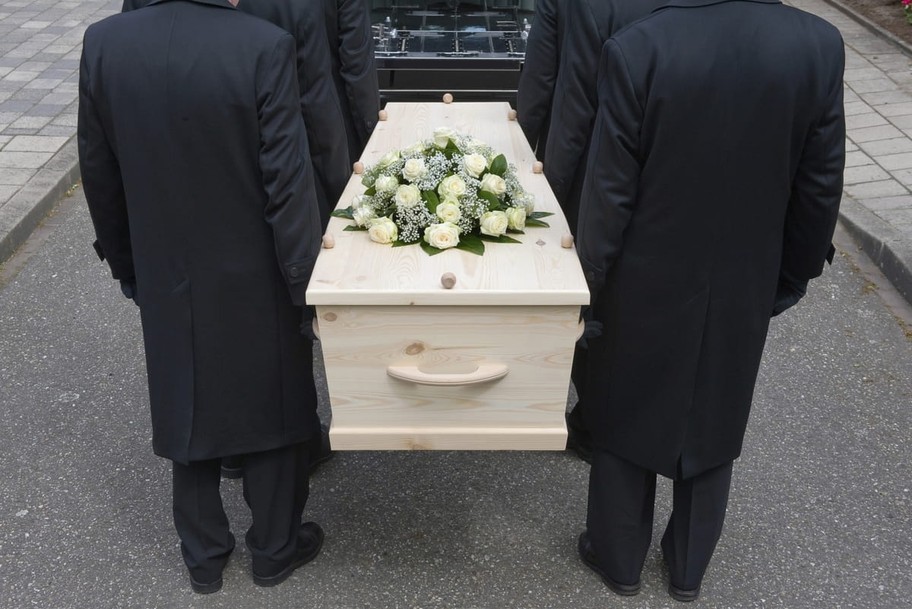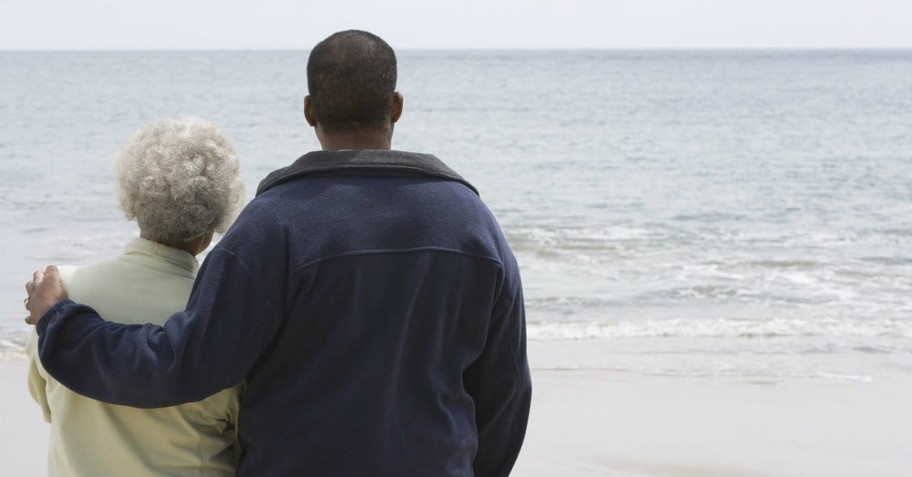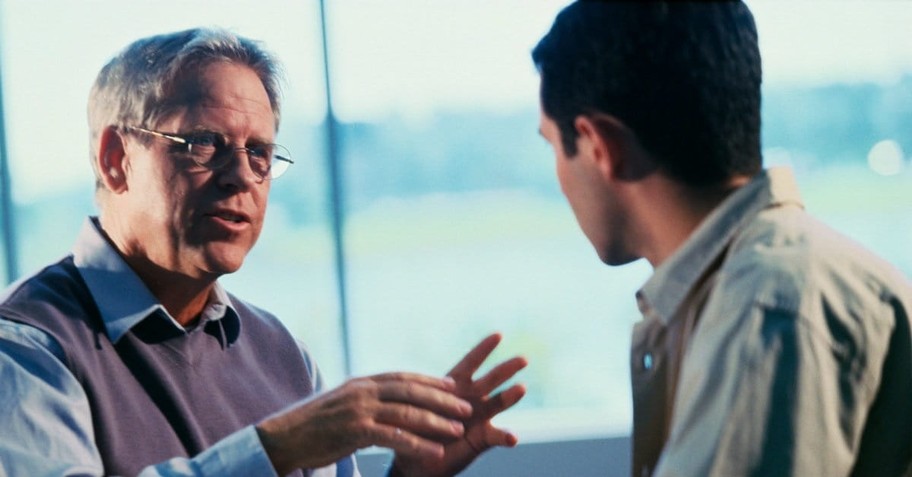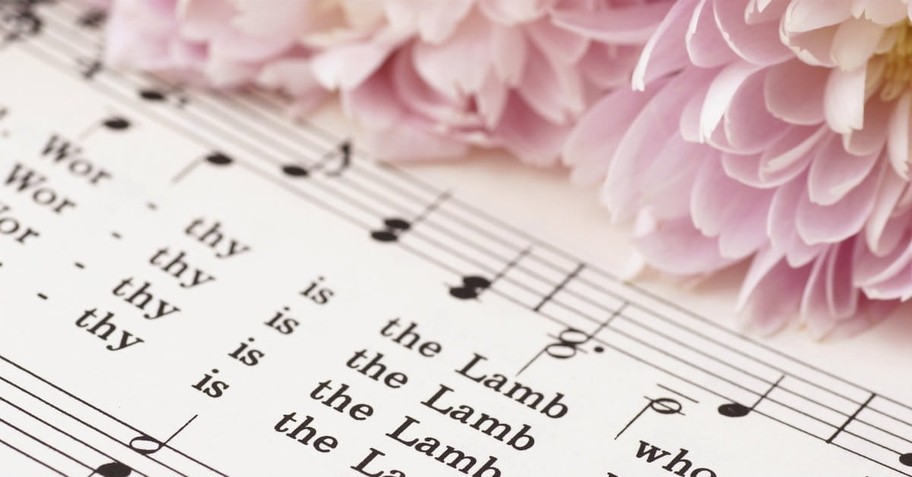The Stings of Death (An Article Not Just for Old People)

The Lord Jesus has taken away the sting of death through his resurrection. Believers know that for all who are in union with Jesus, their bodies will be united to Christ after death and they anticipate the hope of the resurrection. The sting is gone. The last enemy is defeated. Death has no victory over the believer.
All of this is true in a spiritual sense—death has lost its sting, victory over death has been won. Death no longer holds us captive, but as a pastor for nearly a decade, I have observed that death and the trials and sorrow surrounding it have stings that catches many families by surprise. We never know when we will be called out of this life. Middle-aged men die; children die; old people die. Unless Jesus returns, we will all die.
There will be mourning; the sting of death will bring pain. But trust me in this—if you are in Christ, the mourning will be only here on earth; you will be face-to-face with your precious Savior, Jesus Christ.
Photo Courtesy: Thinkstock/kzenon
.1200w.tn.jpg)
Practical, Earthly Matters
However, in today’s world, there are practical, earthly matters that intensify the sting of death for those left behind. There are stings still related to death. Burying a loved one can be a complex and confusing matter that feels like an intrusion in one’s time of grieving. The good news is that there are several ways to take care of these practical matters surrounding death ahead of time so those you leave behind will be more able to mourn in peace.
Photo Courtesy: Thinkstock
.1200w.tn.jpg)
The Business of Death
The business of death in the United States costs families left behind $20 Billion each year. A traditional funeral will cost your loved ones around $10,000. The cost of death—and its sting to your loved ones—is increasing more and more. According to a 2014 Forbes Magazine article, “In 1960 the average cost of a funeral was $706 when only 3.56% of bodies were cremated. Today, with about 42% cremated, the average traditional funeral costs between $8,000 and $10,000. The U.S. funeral industry accounts for about $20 billion in annual economic activity.”
What can be done to help take the sting from death? Following are three areas–three stings–where you can reduce the sting from your family and church community.
Photo Courtesy: Thinkstock

#1. Buy the Box
Death is a business. If you have not made plans with your local funeral home and cemetery, your family will be left with the burden of paying for and deciding upon major financial decisions while under great emotional stress. This ought not to be. If you are able to make arrangements beforehand, please do this.
Personally, I like the pine box option. And a “green” burial saves thousands of dollars if allowed by your state. For myself, I don’t think that I need the Cadillac of caskets as I await the resurrection of the dead.
Photo Courtesy: Thinkstock

Resist the Pressure to Spend
But when you do not make prior arrangements, your family may feel pressured to spend significantly more than if you had made the decision yourself. There’s a simple psychology to this: what your family purchases will be connected to how much they loved you. Even without pressure from the industry, that pressure will be there. Many of the services offered by the funeral industry are not necessary. Embalming, casket seals, and additional add-ons are not necessary for you when you are dead. What the minimum legal requirement for burial is ought to be enough.
Remember that the funeral industry is not the church—it is a business. Buy the box in advance if you can afford it; if you cannot, let your family know that simplicity is what would show you the most love.
Photo Courtesy: Thinkstock

#2. Have the Talk
Different stages of life require “the talk” that helps a person in an upcoming life transition. When you think of “the talk” your parents had with you earlier in life, you might respond “Yuck.” No one likes to have that talk, but it is necessary, isn’t it? So, what is “the talk” regarding death?
Please talk to your pastor about what you would like at your funeral. Talk to your pastor and your elders about the songs you would like to have sung. Talk about the Scripture readings that you would like, as well as the emphasis you would want to have in the sermon. If you don’t do this, at the time of your death, your pastor will have to scramble to put together your favorites from memory or have to rely on others to help consider what you would want to have sung and read and preached. Talk about these decisions with your family as well.
Photo Courtesy: Thinkstock
.1200w.tn.jpg)
Eulogies Can Sometimes Turn into Bad Theology
This is especially important regarding eulogies. Many in the historic reformed tradition do not especially like the eulogizing that occurs at funerals. Eulogies can quickly turn into hagiography, making the dead out to be the holiest of all saints. Eulogies can promote bad theology. How many of us have been at a funeral where uncle so-and-so went on and on about how the dead is “up there” golfing with Moses or playing cards with Grandma. Bad theology is toxic, even at funerals, and if you would not like a time of eulogizing, then you ought to let your minister and elders know. Or you might discuss ways to minimize the problematic aspects.
Photo Courtesy: Thinkstock

Sit Down with Your Pastor
Take time to sit down with your pastor, even if you are young and think you are invincible. Allow him to talk to you about the theology of the funeral and graveside service; ask him to help you write out a sensible liturgy for that event. Select your favorite texts to be read and songs to be sung. Determine the sermon title and tell your pastor what you would like him to emphasize. This will take out this particular sting if your pastor can produce a paper to your family and say, “This is what he or she wanted. We are all prepared in this area.” Have this talk with your pastor. And share these wishes with your family so you can let them know yourself and talk through any concerns.
Photo Courtesy: Thinkstock

#3. Write the Paper
Writing a will can be a sobering thing, but it ought to be done. I have told my congregation that every legal adult ought to have a will. You never know when the Lord Jesus will call you home, and having a will helps those left behind know your wishes for the material and financial goods you leave behind. A will is especially necessary if you have children.
Taking the time to write a will is useful in reflecting on how your possessions, finances, and mementos will be used for the kingdom. Hard questions need to be asked when thinking about what you leave behind. How much should go to the local church? Should unbelieving children receive part of the inheritance? Are there agencies or institutions that support services or ministries you are particularly passionate about—such as seminary education, church planting, or international gospel ministry?
Photo Courtesy: Unsplash

Make Specific Requests
The will is also a time to make specific requests such as, “Don’t take my theological books to Goodwill; please give them to a confessional seminary for distribution to the students.”
And this is not just a project for the terminally ill or the elderly. This is something that each of you ought to have. Without a will, many states will take a significant portion of the finances left behind or determine answers for you. Have a will. You are never too young to die.
Photo Courtesy: Unsplash

Legalize Your Will
Make sure your will is legal. This may be as simple as a notarized piece of paper with signatures. And wills are written on paper, not in stone. If you keep putting off having a will because you don’t know where you want things to go or you are not sure about how much to give to so-and-so, remember your will can change. Destroy your old will and have a new will created. Don’t let the sense of finality of a will keep you from having one.
Again, this is a conversation that you should have with your pastor and elders, as well as your family. They can help you to be objective and to make decisions that best glorify God with your wealth or poverty and the resources God has given you. Don’t let the State make these decisions for you.
Photo Courtesy: Pexels

Conclusion
These three simple helps—buy the box, have the talk, and write the paper—will save your family and your church community thousands of dollars, help your pastor at the time of your death, and take some of the sting of death out of a difficult time for your family and church community.
We all will die. In the church we often talk about being prepared for eternity—and that’s most important. But are we also preparing for the loved ones and material goods we will leave behind? These are important questions that ought to be discussed.
This article originally appeared on Gentle Reformation. View the original article, or other writing by Nathan Ehelman here.
Photo Courtesy: Thinkstock
Originally published April 10, 2018.








